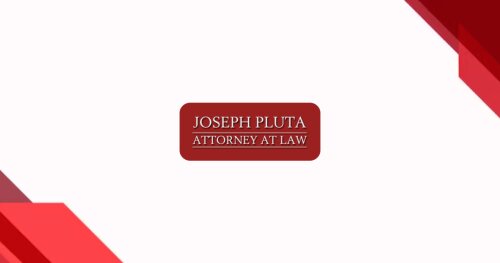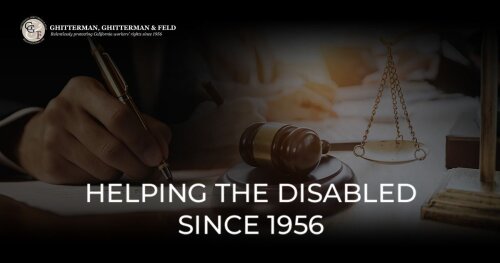Best Insurance Lawyers in Vermont
Share your needs with us, get contacted by law firms.
Free. Takes 2 min.
Or refine your search by selecting a city:
List of the best lawyers in Vermont, United States
About Insurance Law in Vermont, United States
Insurance law in Vermont governs the regulation, management, and enforcement of agreements related to insurance policies. This area of law covers many forms of insurance, including auto, health, homeowners, business, and life insurance. The Vermont Department of Financial Regulation (DFR) is mainly responsible for overseeing insurance companies and ensuring compliance with state and federal regulations. Residents and businesses in Vermont rely on various forms of insurance to protect themselves from unexpected losses or liabilities. The legal framework aims to ensure fairness, transparency, and consumer protection in all insurance transactions.
Why You May Need a Lawyer
Insurance issues can quickly become complex, especially when claims are denied, coverage is disputed, or settlements are delayed or undervalued. Common situations where people might need legal help in Vermont include:
- Denied insurance claims for health, property, auto, or life insurance
- Disputes about the interpretation of policy terms and coverage
- Allegations of insurance bad faith or unfair claims handling
- Delays or underpayment of legitimate claims
- Personal injury or property damage involving insurance companies
- Business interruption or liability insurance disagreements
- Issues with subrogation rights or coordination between multiple policies
- Disputes regarding insurance agent conduct or misrepresentation
An attorney with experience in Vermont insurance law can provide clarity, negotiate with insurance companies on your behalf, and represent you in court or administrative hearings if necessary.
Local Laws Overview
Vermont insurance law is governed by the Vermont Insurance Code, found primarily in Title 8 of the Vermont Statutes Annotated. The state regulates how insurance companies issue policies, set premiums, handle claims, and communicate with consumers. Key aspects include:
- Mandatory insurance requirements, such as auto liability insurance for drivers
- Strict deadlines for filing insurance claims and lawsuits related to policy coverage
- Provisions protecting consumers from unfair claims practices and deceptive advertising
- Grievance procedures for health insurance and appeals processes
- Oversight of insurance companies and agents to ensure financial stability and ethical conduct
- Special provisions for flood, crop, and farm insurance relevant to Vermont’s rural communities
- Anti-discrimination requirements for offering and pricing insurance
The Department of Financial Regulation has broad authority to investigate consumer complaints, license insurance professionals, and enforce state insurance laws.
Frequently Asked Questions
What should I do if my insurance claim is denied in Vermont?
First, request a written explanation from your insurer. Review your policy and gather supporting documentation. If you believe the denial is incorrect, you may file an appeal with the insurer and can also contact the Vermont Department of Financial Regulation for guidance. Sometimes, consulting a lawyer is necessary if the dispute cannot be resolved.
Are there deadlines for filing insurance claims in Vermont?
Yes, most insurance policies specify time limits for reporting claims. Additionally, Vermont law may set deadlines for filing lawsuits related to insurance disputes. Missing these deadlines can result in losing your right to coverage, so act quickly and consult your policy terms.
What are “unfair claims practices” in Vermont?
The Vermont Insurance Code prohibits insurers from engaging in unfair claims practices, such as failing to investigate promptly, undervaluing claims, delaying payment without reason, or misrepresenting facts. Such practices are grounds for complaints and possible legal action.
Is car insurance mandatory in Vermont?
Yes, all drivers must carry minimum amounts of liability car insurance to legally operate a vehicle. Proof of insurance is required when registering your vehicle and during certain roadside checks.
How can I file a complaint against my insurance company?
You can submit a complaint online or by mail to the Vermont Department of Financial Regulation. Provide as much information as possible, including your policy and claim numbers, correspondence with the insurer, and a description of the issue.
What is “bad faith” by an insurer?
“Bad faith” occurs when an insurance company acts dishonestly or unfairly towards the policyholder, such as by wrongfully denying a claim, failing to investigate, or not communicating important information. Vermont law allows policyholders to seek damages for insurer bad faith in some circumstances.
Can an insurance company cancel my policy without notice?
Vermont law requires insurers to provide policyholders with advance written notice before canceling most types of insurance policies, except in cases of fraud or nonpayment. The notice period varies depending on the policy and reason for cancellation.
Are health insurance appeals handled differently in Vermont?
Yes, health insurance appeals often follow specific procedures established by state and federal law. Vermont residents can appeal adverse decisions directly to their insurer and, if denied, may seek an external review or state assistance.
What protection exists for consumers buying insurance in Vermont?
Vermont has various consumer protection laws, including transparency requirements, the right to receive comprehensive policy documents, the ability to appeal denied claims, and the option to file complaints with regulators. Licensed insurance professionals must also adhere to ethical standards.
Should I consult a lawyer before signing an insurance settlement?
It is wise to review any insurance settlement offers carefully. Consulting a lawyer ensures you understand your rights, the value of your claim, and whether the settlement is fair. Once you sign a release, you may lose the ability to pursue further compensation.
Additional Resources
- Vermont Department of Financial Regulation - Insurance Division: Handles licensing, regulation, and consumer complaints related to insurance companies and agents in Vermont.
- Vermont Legal Aid: Provides free or low-cost legal assistance, including in some insurance matters, for qualifying Vermont residents.
- National Association of Insurance Commissioners (NAIC): Offers consumer guides and information about insurance rights and regulations.
- Vermont Bar Association: Can help you locate attorneys with experience in insurance law.
Next Steps
If you are facing an insurance dispute or have questions about policy coverage in Vermont, consider these steps:
- Review your insurance policy and gather documentation relevant to your issue
- Contact your insurance company to seek clarification or appeal a denial
- File a formal complaint with the Vermont Department of Financial Regulation if you suspect unfair practices
- Consult an attorney specializing in Vermont insurance law for personalized legal advice, especially in cases of large or complex claims
- Explore local legal resources or legal aid if cost is an issue
Act promptly to protect your legal rights and ensure the best possible outcome in your insurance matter.
Lawzana helps you find the best lawyers and law firms in Vermont through a curated and pre-screened list of qualified legal professionals. Our platform offers rankings and detailed profiles of attorneys and law firms, allowing you to compare based on practice areas, including Insurance, experience, and client feedback.
Each profile includes a description of the firm's areas of practice, client reviews, team members and partners, year of establishment, spoken languages, office locations, contact information, social media presence, and any published articles or resources. Most firms on our platform speak English and are experienced in both local and international legal matters.
Get a quote from top-rated law firms in Vermont, United States — quickly, securely, and without unnecessary hassle.
Disclaimer:
The information provided on this page is for general informational purposes only and does not constitute legal advice. While we strive to ensure the accuracy and relevance of the content, legal information may change over time, and interpretations of the law can vary. You should always consult with a qualified legal professional for advice specific to your situation.
We disclaim all liability for actions taken or not taken based on the content of this page. If you believe any information is incorrect or outdated, please contact us, and we will review and update it where appropriate.
Browse insurance law firms by service in Vermont, United States
Vermont, United States Attorneys in related practice areas.
Browse insurance law firms by city in Vermont
Refine your search by selecting a city.










